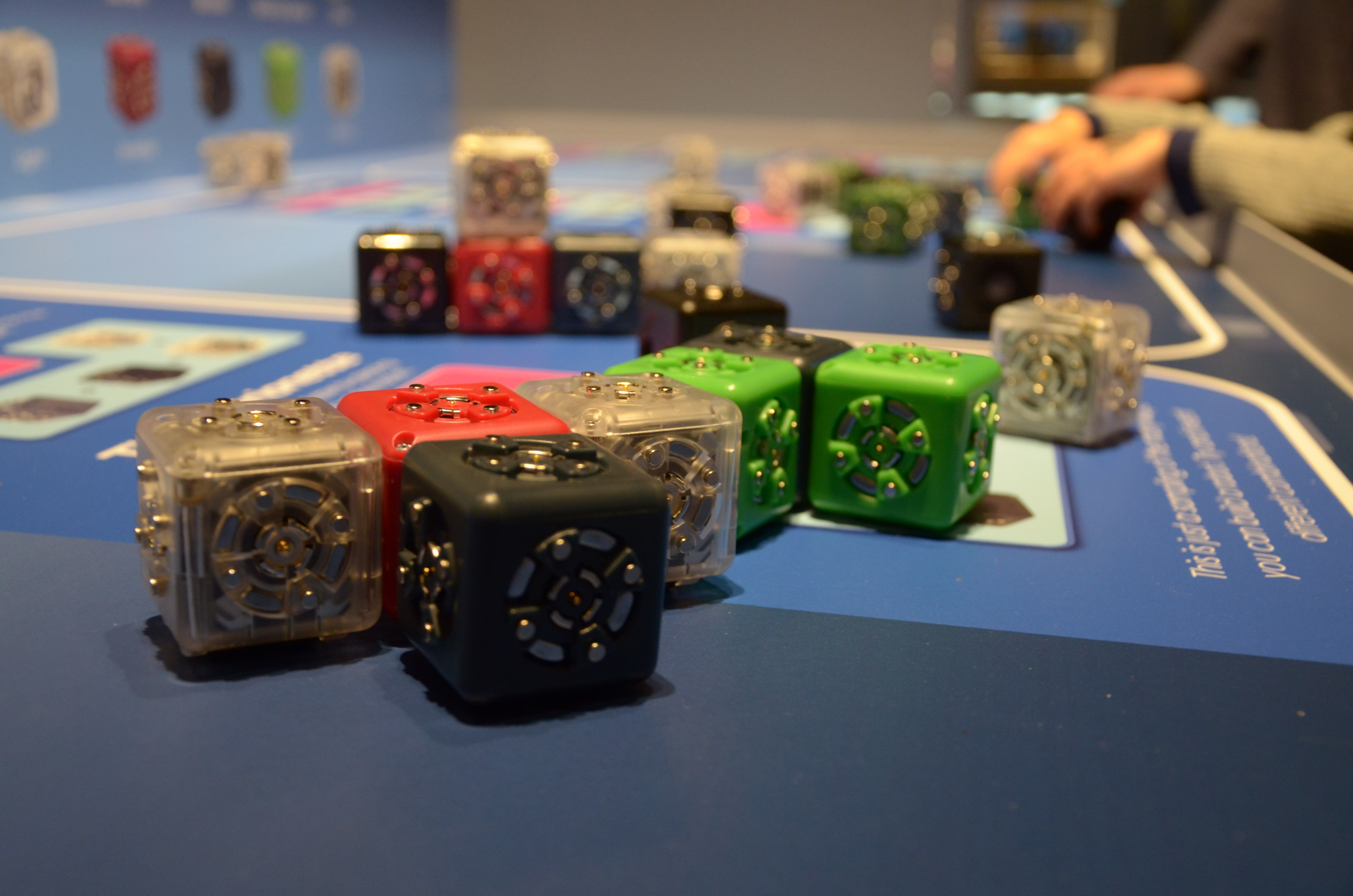
Cubelets aren't your grandma's toy blocks. Each cube is a self-contained robot that performs a specific function. Fit the blocks together, and they become complex creatures. Some follow a light source. Others steer away from walls.
Jordan Nealon, a ninth-grader from Thornton, had other ideas when he came across a set of Cubelets at the Denver Museum of Nature and Science's Robot Revolution exhibit.
- Debate: Blocks Are The Best Toy Ever
- Colorado Archeologist Excavates His Childhood Toys, Discovers Himself
"I'm just going to try and make a little car!" he said.

Nealon found that each block followed a pre-programmed set of rules that he couldn't change. That made it tough to construct his car, but easy to experiment with different combinations of blocks.
"Fiddle around, that's how you do it!" he said. "Fiddle around, see what you get."
What he got by the end was a sensor that read the light level of a spot and displayed the information on another cube. He figured it could be helpful to gardeners looking for the best spot for plants.
That's exactly the right way to play with the cubes according to their inventor, Eric Schweikardt. He also runs Modular Robotics, the Boulder company that makes and markets Cubelets. He spoke to Colorado Matters host Ryan Warner about how Cubelets -- unlike Lego's popular Mindstorms robots -- teach kids to think about complex systems built from simple components.









